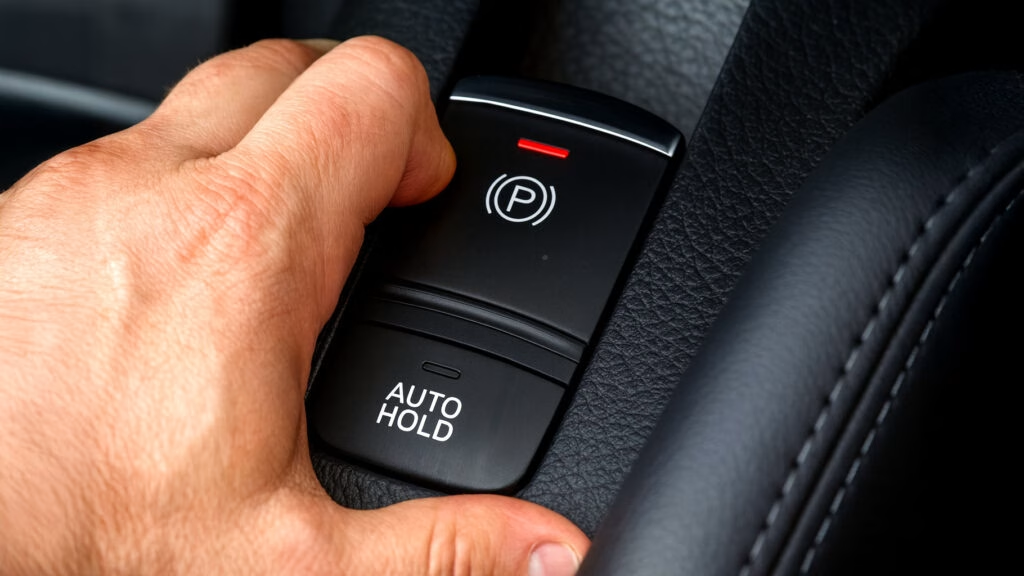What really happens if you pull the electronic parking brake while driving?
Curious drivers have probably glanced at that little button marked with a “P” and wondered: what if I pressed it while cruising down the road? Would the car spin out? Would it lock up the wheels like in the movies? Or would nothing happen at all? Let’s dig into what actually goes on under the hood—and why modern cars handle this scenario far better than you might expect.
Can you safely pull the electronic parking brake at speed?
It’s a question that’s sparked more than a few late-night YouTube experiments and even some official police tests. When police in Germany decided to test this in a controlled setting, they found that pulling the electronic parking brake at speed didn’t send the car into a wild skid. Instead, the car came to a surprisingly calm and controlled stop. The secret? Modern electronic parking brakes are designed to engage all four brakes and activate the anti-lock braking system (ABS), rather than just locking up the rear wheels.
This is a big leap from the old days. With traditional handbrakes, yanking the lever while moving would often lock the rear wheels, potentially sending the car sideways. Electronic systems, by contrast, are programmed to keep things safe and stable, even in an emergency.
How do electronic parking brakes work differently from traditional ones?
The big difference is brains versus brawn. Traditional handbrakes are mechanical—they pull a cable that clamps the rear brakes. Electronic parking brakes, on the other hand, are controlled by the car’s computer. When you activate the e-brake at speed, the system checks your speed, then applies all four brakes evenly and uses ABS to prevent skidding.
This means that, in most modern cars, pulling the e-brake while driving won’t cause a dramatic scene. Instead, you’ll get a controlled stop, some warning beeps, and probably a confused look from your passengers. In fact, a 2023 study by the Insurance Institute for Highway Safety (IIHS) found that electronic parking brakes reduced the risk of loss-of-control incidents during emergency stops by over 60% compared to manual handbrakes.
Are there real-world situations where this could matter?
Absolutely. While it’s not something you should ever test on public roads, there are scenarios where knowing how your car’s e-brake works could be a lifesaver. Imagine a driver passes out from a medical emergency, and a passenger needs to stop the car quickly. Pulling the electronic parking brake could bring the vehicle to a safe halt without the chaos of locked wheels.
Police and emergency services have highlighted this feature as a potential tool for non-drivers in critical situations. It’s a small detail, but it could make a huge difference in the right moment.
What about older cars or those with manual handbrakes?
Here’s where things get dicey. If your car has a traditional mechanical handbrake, pulling it at speed is a very different story. You’re likely to lock up the rear wheels, lose traction, and potentially spin out—especially on slippery roads. ABS typically doesn’t intervene with manual handbrakes, so you’re on your own. That’s why safety experts and automakers strongly discourage experimenting with this, even in empty parking lots.
Are there exceptions or cars where the system doesn’t work as well?
Not all electronic parking brakes are created equal. In some tests, like those done by automotive YouTubers with older BMW 5-Series models, the system didn’t engage ABS, and the stop took much longer. It’s a reminder that while most modern systems are smart, there are still differences between makes and models. Always check your owner’s manual for specifics about your car’s safety features.
What’s the verdict—should you ever try this?
Short answer: don’t. Even though modern cars are designed to handle this scenario safely, intentionally pulling the parking brake while driving is risky, unnecessary, and could void your warranty or cause damage if something malfunctions. Leave the testing to the professionals and YouTubers with access to closed tracks and safety crews.
The big takeaway? Electronic parking brakes are designed with your safety in mind, even in the weirdest situations. They’re not about perfection—they’re about smarter adjustments. Start with one change this week: get to know your car’s safety features. You’ll likely spot the difference in confidence and peace of mind by month’s end.

